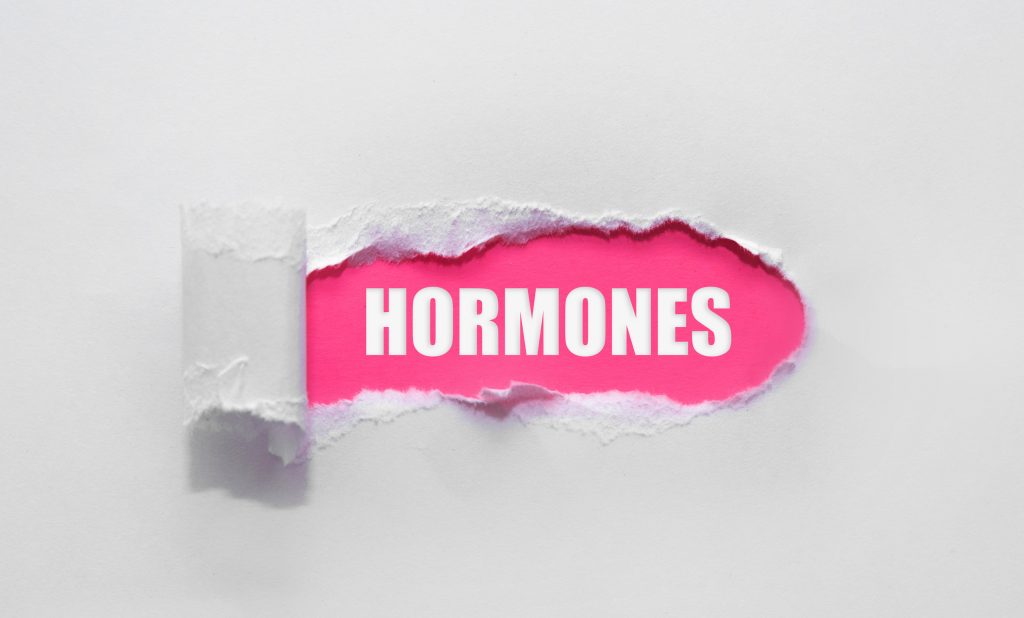
I learned the hard way how essential hormones are for mental health when I had post-partum depression which was unsuccessfully treated with antidepressants and sleeping pills.
Not one of the three psychiatrists or two GPs I saw ever mentioned my hormones. It is rare that psychiatrists, or even GPs, make the link and measure our hormones when we present with mental health problems.
And yet, whether you are a man or a woman, your hormones — chemical messengers that travel from organ to organ throughout the day and night — not only regulate most of your bodily functions such as digestion, sex drive, appetite, body temperature, but they are also essential to regulating your moods, anxiety levels, memory, sleep and concentration.
Their importance to our mental health cannot be overstated
My crazy French hormone story
One of my most memorable experiences with a doctor was a French endocrinologist in Strasbourg, my home town.
Back in 2011, I went to see her because I wanted to test my hormones as I was in the throes of post-partum depression — anxiety, panic attacks, insomnia and mood swings, and having seen various doctors in London to no avail, I thought that maybe in France they would be more up to speed on the importance of hormones for mental health, which I had started to learn about through my own research from the US.
When I explained why I wanted to see her she practically scoffed at me and said:
“Why are you here? You should be seeing your psychiatrist.”
I replied that I wanted to see her because my hormones were clearly out of balance post-partum and it was affecting my mental health.
“Your hormones have nothing to do with your mental health.”
I argued with her that surely they did — what about women who got depressed and anxious during menopause?
“They are that way because they are usually of the age when their kids leave home.”
Outraged by what I perceived to be either gross ignorance or patronising refusal to engage, I challenged her.
Finally, she admitted: “The truth is, you are like black boxes to us, we don’t understand the causes, so we can only treat the symptoms.”
While her honesty was a relief, it also felt outdated and ill-informed to me, especially based on what I was learning about integrative health from US doctors and scientists.
And she was not alone. Not one of my UK conventional doctors ever suggested testing my hormones.
- Not my obgyn who supervised my pregnancy
- Not my GP
- Not my cardiologist who diagnosed me with benign ectopic beats and suggested I go on a beta blocker but never suggested testing my thyroid
- Not my UK endocrinologist who tested me for reactive hypoglycaemia and diagnosed that as the cause of my panic attacks but never thought to test my stress hormones, adrenals or HPA axis
- Not my psychiatrist, who put me on anti-depressants and sleeping pills (and other psychiatrists offered me anti-psychotics and various other forms of anti-depressants when I complained that I was not getting any better), and told me that I would have to be on them “indefinitely”, even though they were having intolerable side effects and I felt were exacerbating my depression
Post-partum depression
As someone who had suffered from some anxiety but never a full-blown depression, I didn’t have a track record of depression, and so clearly this episode of massive anxiety, panic attacks, low mood and insomnia was due to something new and different in my life — something related to pregnancy and childbirth, and therefore surely must have had something to do with my hormones…
The hormonal upheaval around pregnancy, childbirth, breastfeeding, and interrupted nights is significant, and massively impacts our hormones. Combined with the stress of becoming a new mother (which in itself is enough to dysregulate our hormones and our nervous system) and the psycho-spiritual issues which can arise from becoming a mother (which can prompt a resurgence of all one’s unresolved childhood issues), and you can see why post-partum depression affects 10% of women (and clearly it’s a higher number if you take into account the undiagnosed).
Luckily, I eventually found doctors and nutritionists in London who were practicing in an integrative way, and through a combination of diet, lifestyle interventions, stress relief, and bioidentical hormones, I was able to stay off my anti-depressants and gradually heal. But it took me a lot longer than it should have, and I had to go on a time consuming and expensive journey to get there.
How hormones are essential for mental health
Hormones don’t only affect mental health around childbirth, but on a daily basis, our moods, anxiety levels, sleep, memory and concentration are all affected by hormones — both for women and men. This is why puberty, menopause and andropause can be precarious times for our mental health.
But equally, every time we feel stressed, we are releasing stress hormones such as cortisol and adrenaline, which will then have an effect on our sex, thyroid and metabolic hormones, but also on our levels of inflammation and the integrity of our vital protective barriers such as the gut barrier, and the blood brain barrier.
We now know that “depression” and “anxiety” are often symptoms of a dysregulated nervous system, and a dysregulated nervous system can be both a cause and a consequence of a stress hormone imbalance. We know that “stress”, especially when it is chronic, can not only throw all our other hormones out of balance, but is also one of the most substantial causes of mental health symptoms.
Ten years later, while it is now more accepted in the mainstream that hormones are hugely impactful to mental health, unless you are lucky enough to work with an integrative psychiatrist or GP, you’re still unlikely to have your hormones checked when you present with mental health symptoms such as depression, anxiety, insomnia, poor memory or poor attention.
Read more on how hormones can impact your mental health.
Read more on how sex hormones can impact your mental health.
Read more on how stress hormones can impact your mental health.
Read more on how thyroid hormones can impact your mental health.
Read more on how metabolic hormones can impact your mental health.
Dr. Felice Gersh on how to optimise hormones for better mental health
In my interview this month with Dr. Felice Gersh, obgyn, we discuss the crucial link between hormones and mental health. Her interview is rich with information and advice on the impact of hormones on our mental health, and what we can do to restore hormonal balance.
She tells us which hormones are linked with which neurotransmitters, and which hormones are neuroprotective and neuroregenerative. She tells us how hormone imbalances can cause neuroinflammation and impact the integrity of brain cells, the blood brain barrier, the gut microbiome and the gut barrier.
She tells us that light and time of day, movement, foods, toxicants, and sleep can all contribute to balancing or disrupting our hormones, and therefore our mental health.
A few key ideas she covers in the interview:
Hormones, neurotransmitters and the brain
- The link between estrogen and serotonin (the happy neurotransmitter) as well as the effects of estrogen on neuroplasticity, immunomodulation and the brain in both men and women
- The link between progesterone and GABA (the calming neurotransmitter)
- Progesterone as neuroprotective
- The link between testosterone, estrogen and dopamine (the reward and motivation neurotransmitter)
- The importance of estrogen in preserving the integrity of the blood-brain barrier
Hormones and mental health
- Why there is a 400% increase in depression and anxiety in women who are menopausal and 3x greater incidence of Alzheimer’s in women than in men
- The vital importance of testosterone to estrogen balance and mental health, in both men and women
- The importance of T3 Thyroid hormone for mental health and how it can be hard to get enough of it
- Insulin, inflammation, the autonomic nervous system and mental health
- Why dementia is sometimes called Type 3 Diabetes
- The nervous system, vagus nerve and our hormones
Causes of hormone imbalance
- How inflammation and endocrine disruptors such as plastics can cause hormone imbalances and mental health issues
- The dangers of the contraceptive pill for hormone balance and mental health
- The effects of chronically high cortisol on the brain and mental health via neuroinflammation, and the breaking down of the blood brain barrier and the gut barrier
- Why stress makes you make bad decisions and impairs cognitive function and brain health
- The link between inflammation and sleep apnea, and why breathing well at night is essential to hormone balance
- Which toxins are endocrine disruptors and how to minimise our toxic load to improve our hormone balance and mental health
Optimising hormonal balance for better mental health
- The importance of circadian rhythms in balancing our hormones
- Why fun and pleasure are essential to hormone balance
- How oxytocin is key to mental health, appetite and great orgasms
- The importance of omega 3s and 6s and the right amounts of saturated fats for hormonal balance and brain function
- The key nutrients for maintaining hormone balance
- Why just replacing hormones (with bioidentical, or worse synthetic) hormones is not enough — you have to ensure optimum nutrition with the right antioxidants and polyphenols, the right exercise, the right sleep and circadian rhythms, and reduce toxic load
- Why eating breakfast and not snacking are key to hormone balance
- The right type of exercise for optimal hormone balance and longevity
Read more on how to optimise your hormones for better mental health.
Read more on how to optimise your nutrition and supplement for greater hormone balance.
Watch or listen to my interview with Dr. Felice Gersh.
